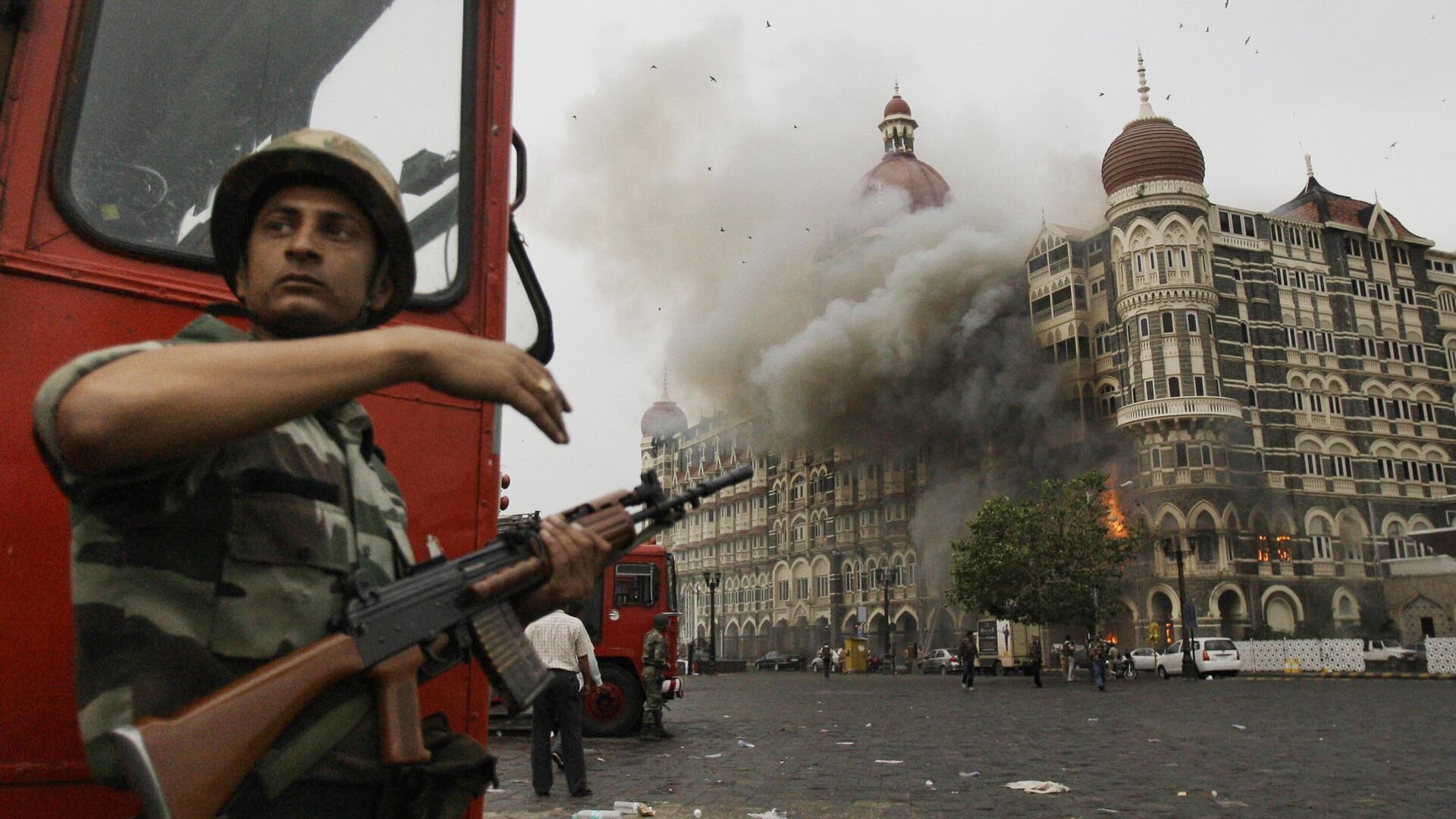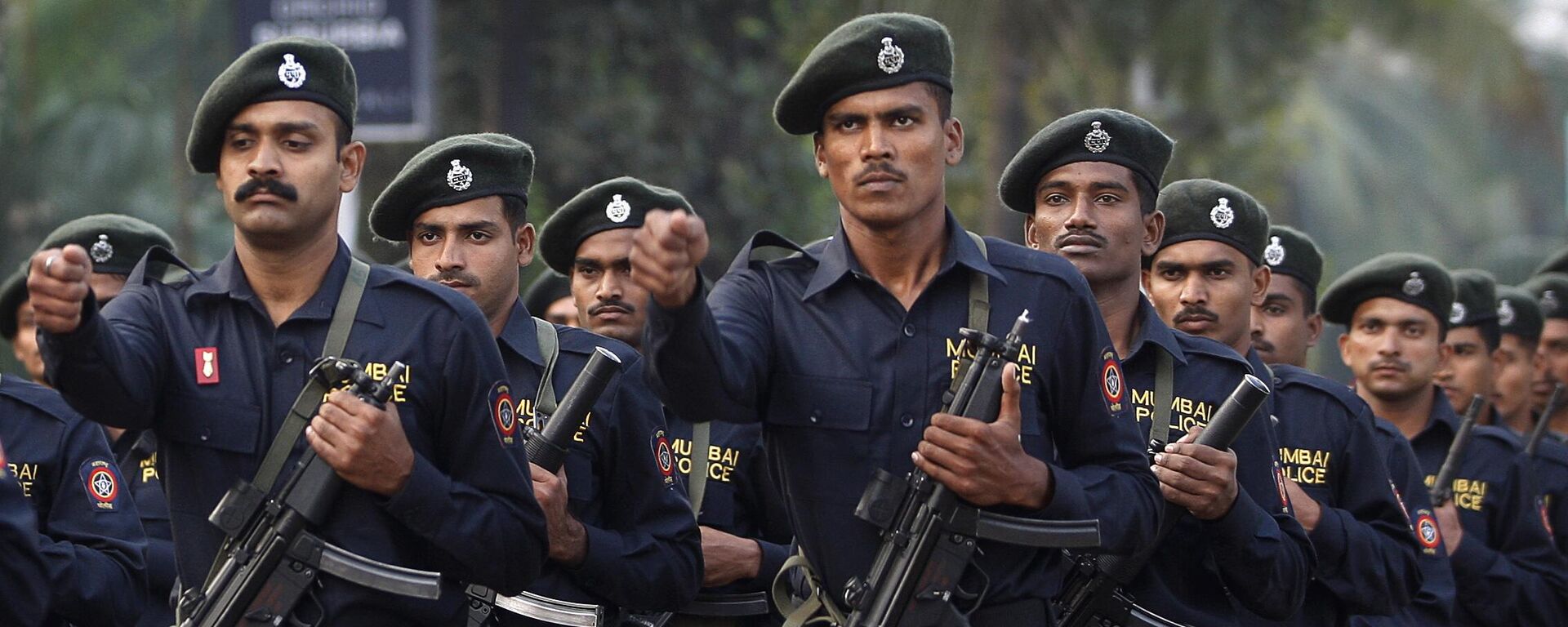https://sputniknews.in/20231021/terrorist-activity-must-be-nipped-in-the-bud-says-former-chief-police-officer-4952935.html
Terrorist Activity Must Be Nipped In The Bud: Former Chief Police Officer
Terrorist Activity Must Be Nipped In The Bud: Former Chief Police Officer
Sputnik India
Singh, the security expert from Uttar Pradesh, shares way outs to curb notorious youths at the outset as they are steadily affecting many impressionable minds.
2023-10-21T16:06+0530
2023-10-21T16:06+0530
2023-10-23T12:32+0530
sputnik opinion
india
delhi
new delhi
uttar pradesh
national security
terror charges
9/11 terror attacks
anti-terror laws
terrorist attack
https://cdn1.img.sputniknews.in/img/07e7/05/12/2029217_0:152:3000:1840_1920x0_80_0_0_9af05d1498b3f9e8bf7af5600e2224d4.jpg
As India strives to combat terrorism, Sputnik India spoke with a former chief police officer who revealed the topical issues existing in the country related to it, and how to curb them. Dr Vikram Singh, former Director-General of Police (DGP) in the state of Uttar Pradesh, told Sputnik India about how widespread the existing terror ecosystem is, and he laid out possible solutions.When asked how the problem should be tackled, Singh said that "there has to be unbiased law enforcement and strong measures at deradicalisation".He also pointed out that it's crucial to pay attention to how young people are raised. Singh called for increased security measures in educational institutions - especially universities - where young people can be exposed to extremist propaganda.Stating that there have been special interest groups that have indulged in communalism in the past and supported the cause of terrorist groups, the former chief police officer picked out groups such as “the SIMI (Students Islamic Movement of India), IM (Indian Mujahideen) and the PFI (Popular Front of India).”Emphasising that deradicalisation is essential, Singh concluded by saying that police and intelligence should spearhead efforts to collect actionable intelligence from reliable channels and sources “with appropriate use of technology and human intelligence”.
https://sputniknews.in/20231021/india-striving-to-form-worlds-best-counter-terror-force-home-minister-4991404.html
india
delhi
new delhi
uttar pradesh
Sputnik India
feedback.hindi@sputniknews.com
+74956456601
MIA „Rossiya Segodnya“
2023
Sandeep Datta
https://cdn1.img.sputniknews.in/img/07e7/04/07/1468069_0:258:1800:2058_100x100_80_0_0_3909870b82375b0693e9fd27915facc3.jpg
Sandeep Datta
https://cdn1.img.sputniknews.in/img/07e7/04/07/1468069_0:258:1800:2058_100x100_80_0_0_3909870b82375b0693e9fd27915facc3.jpg
News
en_IN
Sputnik India
feedback.hindi@sputniknews.com
+74956456601
MIA „Rossiya Segodnya“
Sputnik India
feedback.hindi@sputniknews.com
+74956456601
MIA „Rossiya Segodnya“
Sandeep Datta
https://cdn1.img.sputniknews.in/img/07e7/04/07/1468069_0:258:1800:2058_100x100_80_0_0_3909870b82375b0693e9fd27915facc3.jpg
how terrorism affects national security, how to stop terrorism in india, how to tackle terrorism in india, how to report terrorism in india, how to stop terrorism in india essay, what vikram singh said about terrorism, what is communal violence, what is communal violence in india, how is terrorism a security threat,what is terror ecosystem, what happened at anti-terror conference, where was anti-terror conference organised, who organised conference in delhi, what is national investigation agency, what is nia, what amit shah said about terror ecosystem, what indian home minister amit shah said about terror ecosystem, what happens in indian universities, why students are protesting in universities, what afzal guru did, who was mohammad afzal guru, when indian parliament was attacked, what steps needed against terrorism, what experts think of sleeper cells, what security expert think about terrorism, how communal violence can be stopped, who can control communal violence, what indian home minister said on terrorism, what happened in nuh, what happened in nuh mewat, what happened in nuh haryana,
how terrorism affects national security, how to stop terrorism in india, how to tackle terrorism in india, how to report terrorism in india, how to stop terrorism in india essay, what vikram singh said about terrorism, what is communal violence, what is communal violence in india, how is terrorism a security threat,what is terror ecosystem, what happened at anti-terror conference, where was anti-terror conference organised, who organised conference in delhi, what is national investigation agency, what is nia, what amit shah said about terror ecosystem, what indian home minister amit shah said about terror ecosystem, what happens in indian universities, why students are protesting in universities, what afzal guru did, who was mohammad afzal guru, when indian parliament was attacked, what steps needed against terrorism, what experts think of sleeper cells, what security expert think about terrorism, how communal violence can be stopped, who can control communal violence, what indian home minister said on terrorism, what happened in nuh, what happened in nuh mewat, what happened in nuh haryana,
Terrorist Activity Must Be Nipped In The Bud: Former Chief Police Officer
16:06 21.10.2023 (Updated: 12:32 23.10.2023) Exclusive
The internal security expert has spelt out how the activities that attract people to committing anti-social and anti-patriotic acts must be stopped before they have a chance of taking root if India wants to abolish the terrorist threat.
As India strives to combat terrorism, Sputnik India spoke with a former chief police officer who revealed the topical issues existing in the country related to it, and how to curb them.
Dr Vikram Singh, former Director-General of Police (DGP) in the state of Uttar Pradesh, told Sputnik India about how widespread the existing
terror ecosystem is, and he laid out possible solutions.
Describing the current state of affairs, Singh said that in his opinion terrorist cells develop just as cancer cells do - if they are ignored they will spread. "So, the problem is very deep and requires not just critical surgery but also chemotherapy.”
When asked how the problem should be tackled, Singh said that "there has to be unbiased law enforcement and strong measures at deradicalisation".
He also pointed out that it's crucial to pay attention to how young people are raised. Singh called for increased security measures in
educational institutions - especially universities - where young people can be exposed to extremist propaganda.
Asked if there was any way curbing existing challenges could be made easier, he said: “I would expect every sector of society and stakeholder - those in charge of education, academicians, parents, the society , law enforcement agencies and political parties - not to encourage such anti-social and anti-patriotic activities at all.”
Stating that there have been special interest groups that have indulged in communalism in the past and supported the cause of
terrorist groups, the former chief police officer picked out groups such as “the SIMI (Students Islamic Movement of India), IM (Indian Mujahideen) and the PFI (Popular Front of India).”
Singh urged educational institutions to act as protectors of the nation. Extremist propaganda “must be nipped in the bud”, he added.
Emphasising that deradicalisation is essential, Singh concluded by saying that police and intelligence should spearhead efforts to collect actionable
intelligence from reliable channels and sources “with appropriate use of technology and human intelligence”.



